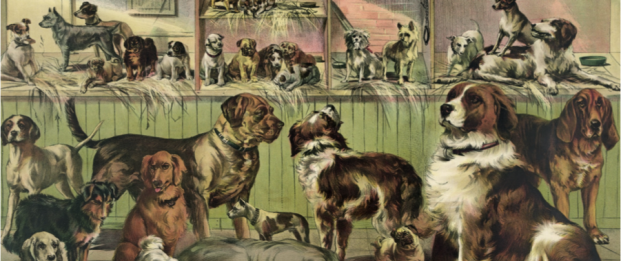
Dogs: From Feral to Friend
ANTH 4953-900
Courtney Hofman, Department of Anthropology
This interdisciplinary course will draw from art, history, genetics, psychology, biology, anthropology, and other fields to explore the history of “Man’s best friend” and their close relatives. We will investigate the behavior, biogeography, and relationships humans have had across time with wolves, dog, foxes, and coyotes. We will delve into the process of domestication and the variety of roles that dogs play in societies, from workers, food sources, and companions. World-class guest speakers, OU anthropology faculty, and local partners will contribute to these discussions about human-canid interactions.
Public Lecture Series
The Department of Anthropology presents a public lecture series in conjunction with the Presidential Dream Course. Presentations are free and open to the public. For information or accommodation to events on the basis of disability, contact Courtney Hofman, courtney.hofman@ou.edu.
Ancestry and Place of Ofi' Tohbi' in Nature

Monday, January 31, 2018
4:30pm
Dale Hall Tower, 9th Floor Community Room
View Lecture Flyer [PDF]
Kent Smith, Ph.D.
Associate Dean,
Office for the Advancement of American Indians in Medicine and Science Professor of Anatomy, Oklahoma State University
Dr. Smith completed his PhD in Zoology from the University of Oklahoma. In 2003, he joined the Oklahoma State University Center for Health Sciences where he served as the course coordinator for clinical anatomy, conducted research on tracing mammalian diversity through deep time to evaluate actors that influence changes in faunal composition, as well as, describing novel anatomical variations in humans to advance surgical outcomes. In 2010, Kent created outreach programs to engage Native citizens in science, medicine, and culture. As a result of these Native initiatives, he founded the Office for the Advancement of American Indians in Medicine and Science at OSU-CHS. Kent is a well-recognized fossil mammal expert. He has authored papers published in international journals naming several new fossil mammals including a short-jawed mustelid that was named in honor of the Chickasaw people (Brevimalictis chickasha).
Human-Canine Interactions through Time
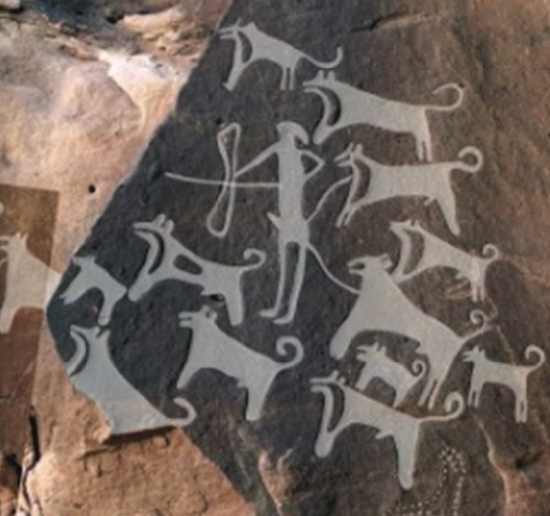
Wednesday, February 14, 2018
3:30pm
Dale Hall Tower, 9th Floor Community Room
View Lecture Flyer [PDF]
Angela Perri, Ph.D.
Durham University
Angela is a Marie Curie COFUND Research Fellow in the Department of Archaeology at Durham University and a Research Associate at the Max Planck Institute for Evolutionary Anthropology. She is an archaeologist with primary interests in zooarchaeology, paleoecology, and paleoenvironments. Her research focuses on early human-canid interactions, including dog domestication and the use of dogs as hunting technology.
Genomic Analysis of Domestic Dogs: Where Did All These Breeds Come From?
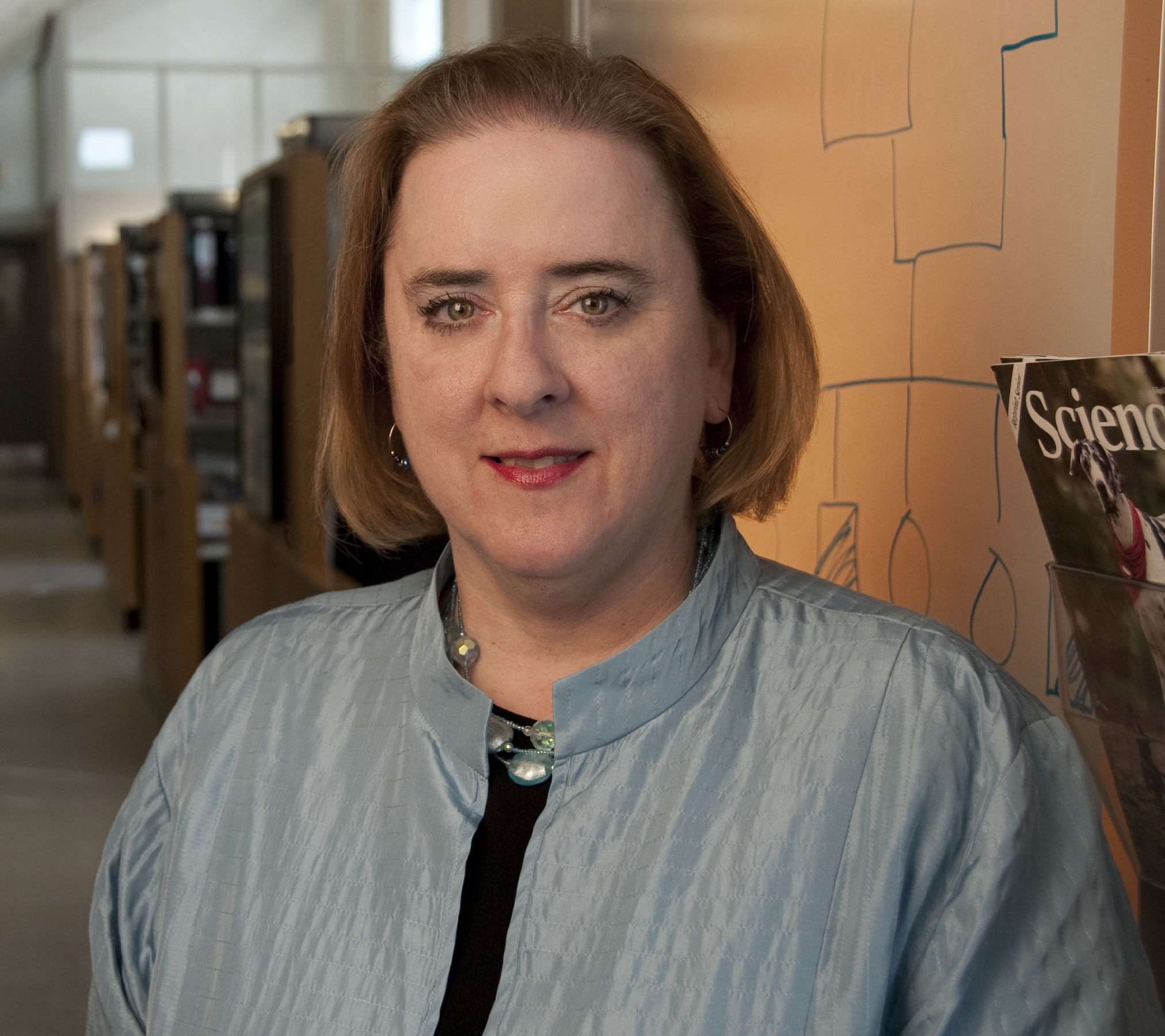
Wednesday, February 21, 2018
4:30pm
Dale Hall Tower, 9th Floor Community Room
View Lecture Flyer [PDF]
Elaine Ostrander, Ph.D.
National Institute of Health
Dr. Elaine Ostrander is Chief of the Cancer Genetics and Comparative Genomics Branch at the National Human Genome Research Institute of NIH and head of the Section on Comparative Genetics. She received her Ph.D. from Oregon Health Sciences University in 1987, and did postdoctoral training at Harvard and UC Berkeley. She initiated the canine genome project in 1993, building maps to navigate the dog genome. Her current work focuses on finding genes controlling morphologic variation and disease susceptibility. She was a faculty member at the Fred Hutchinson Cancer Research Center for 12 years and moved to NIH in 2004. Dr. Ostrander has published over 340 papers, edited multiple books, and won several awards including the American Cancer Society Junior Faculty Award, Burroughs Welcome Award for Functional Genomics, Asa Mays Award, the International Canine Health Lifetime Achievement Award, and the 2013 Genetics Society of America Medal.
How to Tame a Fox and Build a Dog

Wednesday, March 14, 2018
12:00pm
Zarrow Hall, JJ Rhyne Community Room
View Lecture Flyer [PDF]
Lee Dugatkin, Ph.D.
University of Louisville
For the last six decades a dedicated team of researchers in Siberia has been domesticating silver foxes to replay the evolution of the dog in real time. Lyudmila Trut has been lead scientist on this work since 1959, and together with biologist and historian of science, Lee Dugatkin, she tells the inside story of the science, politics, adventure and love behind it all. Like a set of Russian nesting dolls, How to Tame a Fox and Build a Dog opens up to reveal story after story, each embedded within the one that preceded it. Inside this tale of path-breaking science in the midst of the often brutal -35° winters of Siberia is hidden a remarkable collaboration between an older, freethinking scientific genius and a trusting, but gutsy young woman. Together these two risked not just their careers, but to an extent their lives, to make scientific history. If you go one level deeper, you find yourself lost in the magical tale of how some hardscrabble but openhearted humans and the wild animals who they domesticated developed such deep attachments to each other that both seemed to forget the species divide
Why Pet Owners in Poverty Turn Down Free Veterinary Care
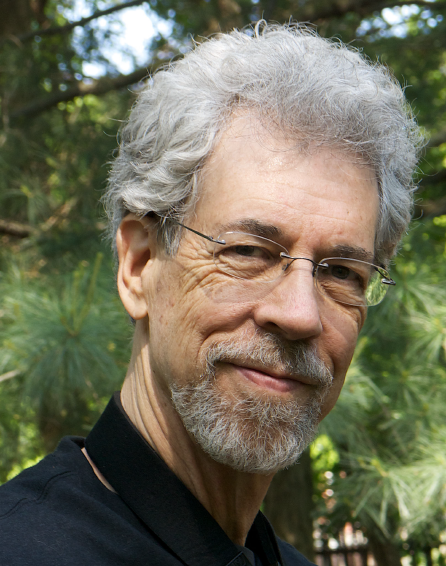
Wednesday, April 18, 2018
4:30pm
Dale Hall Tower, 9th Floor Community Room
View Lecture Flyer [PDF]
Arnie Arluke
Northeastern University
Arnie Arluke, (PhD, NYU) is Professor Emeritus of Sociology and Anthropology at Northeastern University and Senior Scholar at the Tufts Center for Animals and Public Policy. Author of 13 books and over 100 articles, he has studied conflicts and contradictions in the work of animal cops, shelter workers, and laboratory animal scientists, the sociology of animal abuse and animal hoarding, the relative perception of suffering in animal versus human victims, animal protection in Nazi Germany, and early twentieth century photography of human-animal relationships. His current research examines problems that prevent the delivery of free or discounted veterinary care to underserved populations in the US and Central America.
Science with a Soundtrack: Easter Coyotes - Part Wolf, Part Dog, Extremely Adaptable
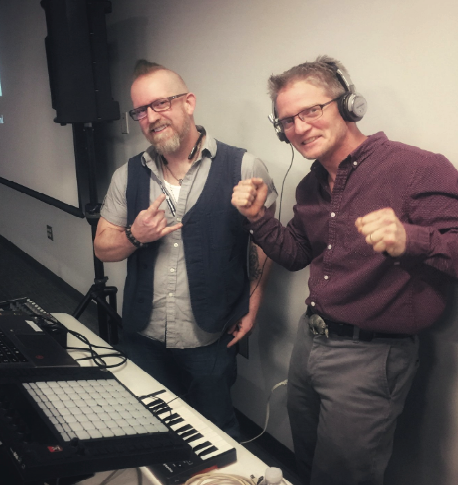
Wednesday, May 2, 2018
5:00pm
Dale Hall Tower, 9th Floor Community Room
View Lecture Flyer [PDF]
Roland Kays, PhD
North Carolina Museum of Natural History
In this one-of-a-kind performance, Dr. Roland Kays will present the latest research about coyotes to a soundtrack performed by Senator Jaiz. Dr. Kays will explain how hybridizing with wolves and dogs has allowed these coyotes to rapidly evolve into a larger predator, helping them to ll the ecological niche left open by the local extinction of wolves in the East. Now that they have colonized all our wild areas, coyotes have begun to be seen in urban areas, leading to new questions about their adaptability to city life. Dr. Roland Kays is the head of the Biodiversity Research Lab at the NC Museum of Natural Sciences and a research associate professor in the Fisheries, Wildlife, and Conservation Biology program at NC State. His research on urban wildlife has been feature in documentaries, the popular press, and his recent book, Candid Creatures, features camera trap photographs from a number of researchers. Eban Crawford/Senator Jaiz is part of the Television/Emerging Media Group at NC Museum of Natural Sciences.

